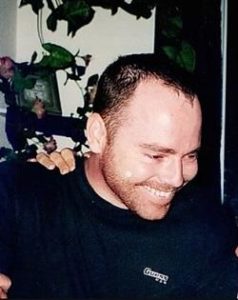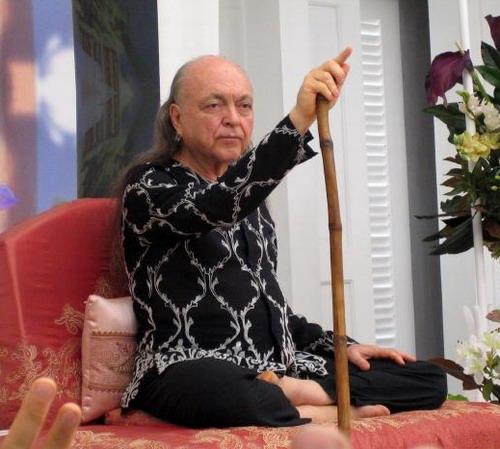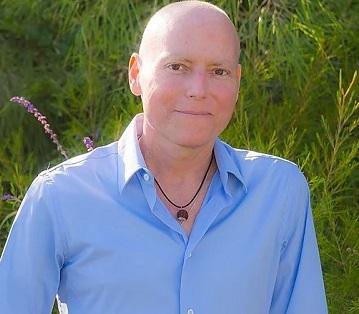“You are the first generation of those who must incarnate that Truth for others”
Adi Da Samraj
***
“When an elder dies, a library burns to the ground.”
African proverb
***
The Preservation of the Guru’s True Leela is an Act of Survival

Jeff Forrester (1966-2015)
![]() ight now, as I write this, the life of my guru, Adi Da Samraj, is disappearing into the void of history. If that seems like an exaggerated way to put it, think about it this way: If you count the number of hours that Bhagavan Adi Da was awake and active among us since 1970, and then count the number of those hours that have been physically recorded in all of their detail – it is far less than 1% of those 38 years.
ight now, as I write this, the life of my guru, Adi Da Samraj, is disappearing into the void of history. If that seems like an exaggerated way to put it, think about it this way: If you count the number of hours that Bhagavan Adi Da was awake and active among us since 1970, and then count the number of those hours that have been physically recorded in all of their detail – it is far less than 1% of those 38 years.

Those in our sangha who did live closely with Adi Da, who might be able to recount the true leela of his life, often have difficulty now remembering exactly what happened. They can recall fragments, phrases and partial events, but often these details are contradicted by the memories of their peers.
I believe there is a percentage of Bhagavan Adi Da’s actual sayings and doings that is possible to reclaim. But that will take a concerted effort. Essentially, the effort of every living devotee who had physical contact with Bhagavan Adi Da – to record, without embellishment or revision, the memory of our guru’s life.
If we don’t record what our guru actually said and did, then others will invent our history. This “reinventing” is happening even now: all you have to do is look around online.
Almost everything else we do, or do not do as a sangha, can be redeemed over time by future generations of authentically practicing devotees. But the leela is one thing that, once lost, can never be found again. Every day that passes without a “rememberer” writing down what memories they might have is the equivalent of losing hours of historical film footage daily from our archives. Every death of a first generation devotee is “the burning of a library”.
What are the most profound, insightful, powerful and moving leelas you have ever heard?
For me, they are the leelas of those who lived in Adi Da’s house. Those to whom our guru was most humanly surrendered, those to whom he gave his life utterly. Those, who, likewise, gave of themselves. Every week now, I am sent a leela that is so powerful in its depth it takes me all day to conduct and process its implication. These leelas are ones that, in our current culture, are no longer told, at least among the majority of devotees, or in the community at large.
But these are some of the most humanly instructive leelas we have.
The preservation of the guru’s true leela is an act of survival.
Without it, much of our guru’s discrimination and intelligence will be permanently lost. And any devotee who lived with Adi Da can imagine why: It is because Bhagavan cannot be contained in words, even in his own “captured” words. As he said – we revise his teaching in the moment of hearing it.
It may be that we are simply not mature enough or empowered enough, individually or socially, to openly speak the unembellished and unedited leela of what Bhagavan Adi Da actually said and did. But this does not mean we can’t record it.
I know that part of the reason why many devotees do not record the leela of their life with Bhagavan is because they are afraid of it being edited or revised to the point of losing all personal meaning. Or they do not want it to be turned into a story that supports a “version” of their guru that is not whole. Also, many do not feel that the apparently simple story they have to tell would impact on others. But the smallest of gestures are often the most telling.
To edit and revise certain aspects of what Bhagavan said and did in reality is an effort to make Bhagavan palatable to the present-day social mind. Or worse, an effort to make him compatible with a reigning ideological paradigm – one that simply mirrors how we think we understand the realizer’s transcendental existence.
But we have no such understanding.
There are subtleties in every single word and gesture of Bhagavan that no one among us yet understands, or even sees. Just as certain things Bhagavan said and did are only grasped by us now – truly decades after they occurred – so it is with the totality of Bhagavan’s leela. I think it’s important for us to acknowledge and accept this.
The generation of humankind that lives five thousand years from now will see and know truths about Adi Da in a way that we can’t possibly foresee. This is why the true leela of Bhagavan is not what we reconstruct and reframe, according to our own limits, structures of belief, social anxiety or normative ethics.
The true leela is only the facts.
Adi Da did this.
Adi Da said this.
Adi Da’s leela is not a “holy narrative” that we invent as a form of instruction to others. It is not a version of events that changes names, facts, and words, or edits them into a socially acceptable story. The leela is not the editing out and revision of uncomfortable but real things that constituted Bhagavan’s life and work. The leela is not ours to own, manipulate or conceal.
Regardless of what we decide to do with Bhagavan’s leela – keep it until a later date, until we feel comfortable sharing it, or tell it in pieces, or not – we absolutely must record it.
I feel the means need to be made to do this. Those devotees who lived with Bhagavan and have even one minute of story to tell should feel obliged to record that single minute.
If we can’t make use of this leela ourselves, or conduct it interpersonally or socially, we still must preserve it for others. In most esoteric communities, the realizer’s true life is quickly buried, and his life and word becomes a “teaching lesson”, as in “The Mummery Book”. Cleansed and aligned to religious ideas, but bereft of vital, living force.
As we enter the celebration of telling Bhagavan Adi Da’s leela, perhaps we can consider this matter more deeply. Esoteric culture is the most difficult to preserve, but it begins with preventing the loss of the realizer himself.

***